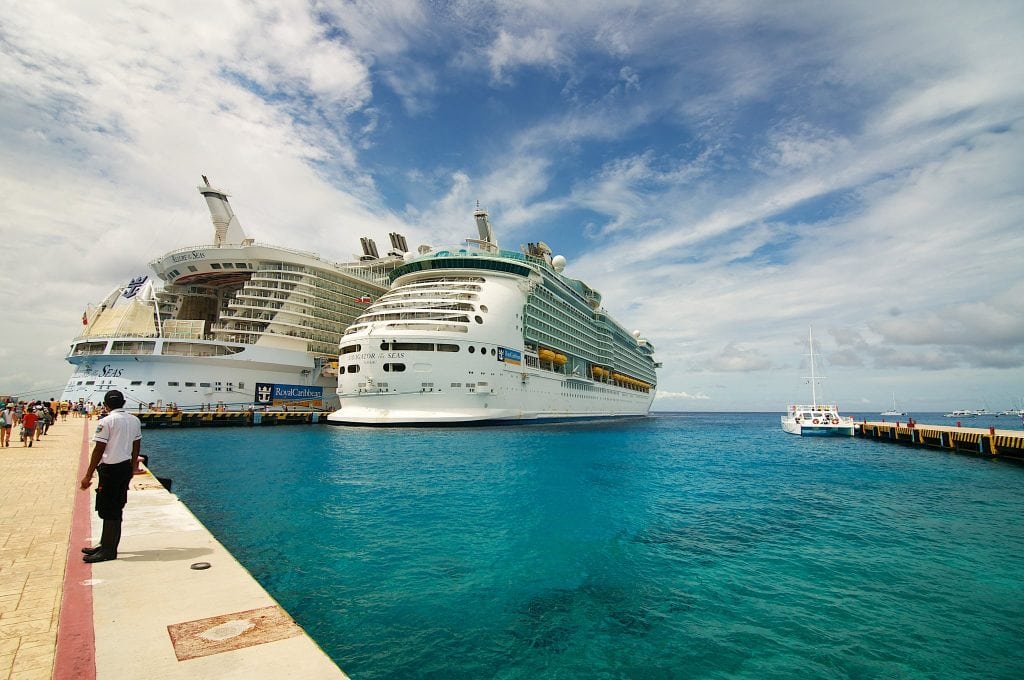Skift Take
Cruise lines have changed the date of their return to service multiple times now, and Royal Caribbean is no different. Despite selling cruises for the summer period, executives don't seem particularly bullish on the prospect of a full return to service in the near term.
Royal Caribbean Cruises Ltd, the world’s second largest cruise company, reported its first quarter earnings on Wednesday, sustaining a wider loss than analysts expected and delaying a return to sailing for a third time.
The cruise line reported a net loss of $1.4 billion, or $6.91 per share, compared to $249.7 million net income and $1.19 earnings per share gain in the same quarter last year. Revenue fell 17 percent to $2.03 billion.
The company sustained a non-cash asset impairment loss of $1.1 billion, which it said was entirely due to Covid-19. It has withdrawn its guidance for 2020 as well as the second quarter, but said it expects to incur a loss on both timescales, “the extent of which will depend on the timing and extent of our return to service.”
On the return to service, the company had previously said it would resume sailing in mid-May, and then again on June 12. During the call, it revealed it would pause sailings again through July 31, following a move made today by Norwegian Cruise Line. The pause will exclude Chinese operations.
Get the Latest on Coronavirus and the Travel Industry on Skift’s Liveblog
The cruise line also said will expects a cash burn of $250 to $275 million per month during its prolonged suspension, more than 60 percent of which is operating costs. Regarding forward bookings, the company said levels for the remainder of 2020 are “meaningfully lower” than the same period last year despite low single digit prices. Its position for 2021 is “within historical ranges.”
As of March 31, when the quarter ended, the cruise line said it has $2.4 billion in customer deposits. As of April 30, roughly 45 percent of customers had requested cash refunds on cancelled sailings, rather than a 125 percent credit on cruise sailings. Loyalty members are redeeming such credits at a higher rate than non-loyalty guests.
CEO Richard Fain also spoke about what he described as a “monumental task:” repatriating crew to the more than 100 countries they come from. Two months out from the suspension, the effort is still underway and Royal Caribbean recently declined to tell the Miami Herald what percentage of its crew is still waiting to be taken home.
“It’s really hard to convey the complexity of the process to somebody who’s used to making simple travel arrangements, but our teams are working around the clock with the multitude of governing bodies to repatriate our crews as soon as possible,” Fain said. “We’ve even gone to the extent of using our ships as transport vessels and currently have 9 ships carrying more than 10,000 crew members back to their home countries.”
Fain was not explicit about when he believes the company will be able to begin cruising on all its vessels again. But he didn’t suggest it was going to be any time soon.
“I think we don’t expect that this is going to be that someday somebody blows a horn and all the ships start operating right away. We think that it will be a gradual start, a little bit like societies in opening up gradually. And so we would imagine that we would start with smaller — with fewer ships and more likely to be more drive markets in the beginning, and it would then evolve and grow from there.”
Fain did not meaningfully answer an analyst question probing for specifics about what would happen if an outbreak occurred onboard and/or a ship got stranded offshore again once the company resumes sailing. However, earlier Fain spoke about building the company’s Healthy Return to Service program, which will have four main focuses: “upgraded screening prior to boarding, enhanced processes and procedures on board, special focus on addressing the destinations we visit, and procedures for dealing with any reports of exceptions.”
“We recognize that this is an extremely complex area,” Fain said “and we have assembled a blue ribbon team of experts to advise us on the right approach. Our goal is to raise our standards to entirely new levels, and we believe that the Healthy Return to Service program will help us get there.”
The Daily Newsletter
Our daily coverage of the global travel industry. Written by editors and analysts from across Skift’s brands.
Have a confidential tip for Skift? Get in touch
Tags: coronavirus, cruise lines, cruising, earnings, royal caribbean
Photo credit: Royal Caribbean ships docked in Cozumel, Mexico. Taminator / Flickr
